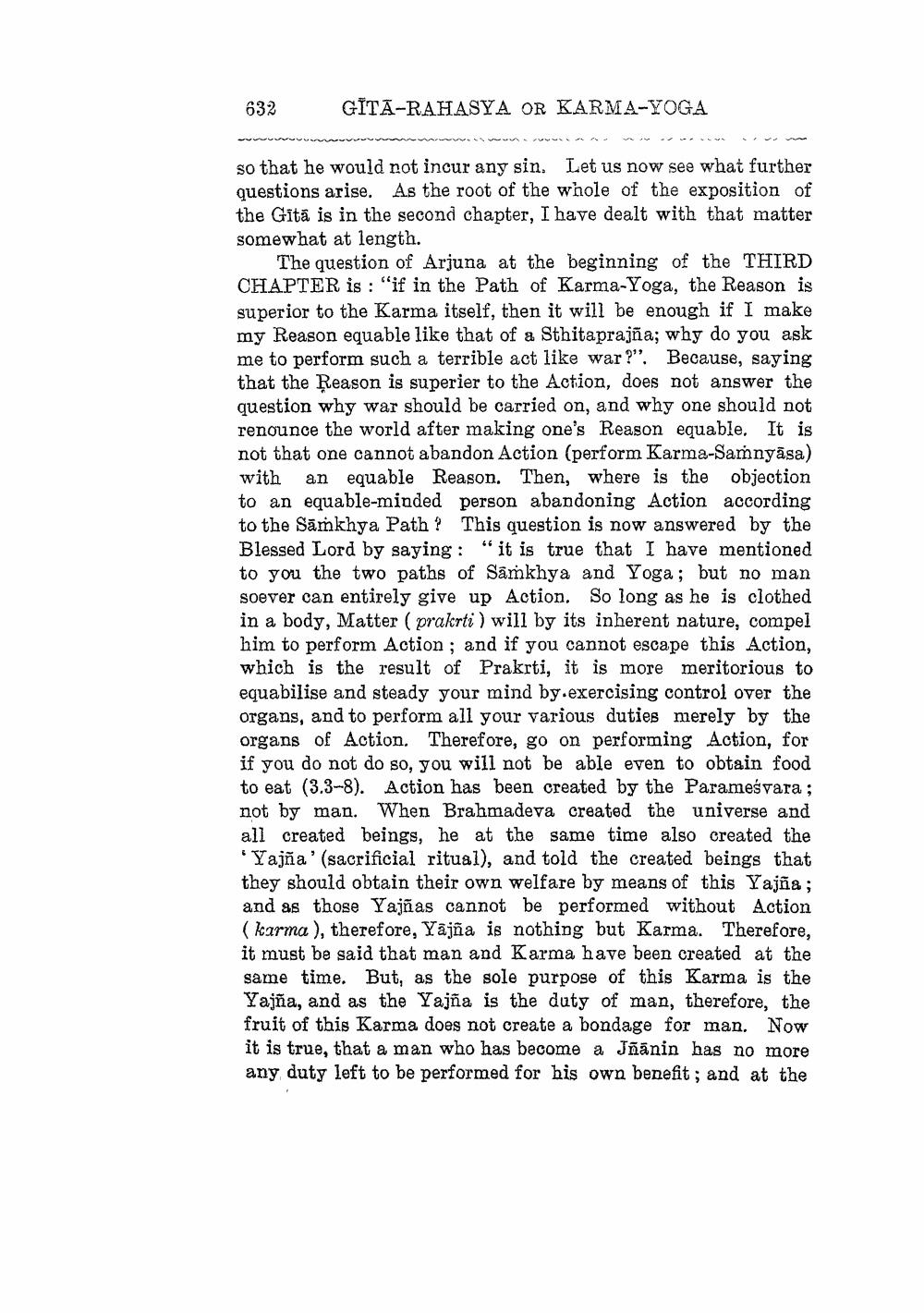________________
632
GITA-RAHASYA OR KARMA-YOGA
wwww..
so that he would not incur any sin. Let us now see what further questions arise. As the root of the whole of the exposition of the Gita is in the second chapter, I have dealt with that matter somewhat at length.
The question of Arjuna at the beginning of the THIRD CHAPTER is: "If in the Path of Karma-Yoga, the Reason is superior to the Karma itself, then it will be enough if I make my Reason equable like that of a Sthitaprajña; why do you ask me to perform such a terrible act like war?". Because, saying that the Reason is superier to the Action, does not answer the question why war should be carried on, and why one should not renounce the world after making one's Reason equable. It is not that one cannot abandon Action (perform Karma-Samnyasa) with an equable Reason. Then, where is the objection to an equable-minded person abandoning Action according to the Samkhya Path? This question is now answered by the Blessed Lord by saying: "it is true that I have mentioned to you the two paths of Samkhya and Yoga; but no man. soever can entirely give up Action. So long as he is clothed in a body, Matter (prakrti) will by its inherent nature, compel him to perform Action; and if you cannot escape this Action, which is the result of Prakrti, it is more meritorious to equabilise and steady your mind by.exercising control over the organs, and to perform all your various duties merely by the organs of Action. Therefore, go on performing Action, for if you do not do so, you will not be able even to obtain food to eat (3.3-8). Action has been created by the Parameśvara; not by man. When Brahmadeva created the universe and all created beings, he at the same time also created the 'Yajña' (sacrificial ritual), and told the created beings that they should obtain their own welfare by means of this Yajña; and as those Yajñas cannot be performed without Action. (karma), therefore, Yajña is nothing but Karma. Therefore, it must be said that man and Karma have been created at the same time. But, as the sole purpose of this Karma is the Yajña, and as the Yajña is the duty of man, therefore, the fruit of this Karma does not create a bondage for man. Now it is true, that a man who has become a Jñanin has no more any duty left to be performed for his own benefit; and at the




